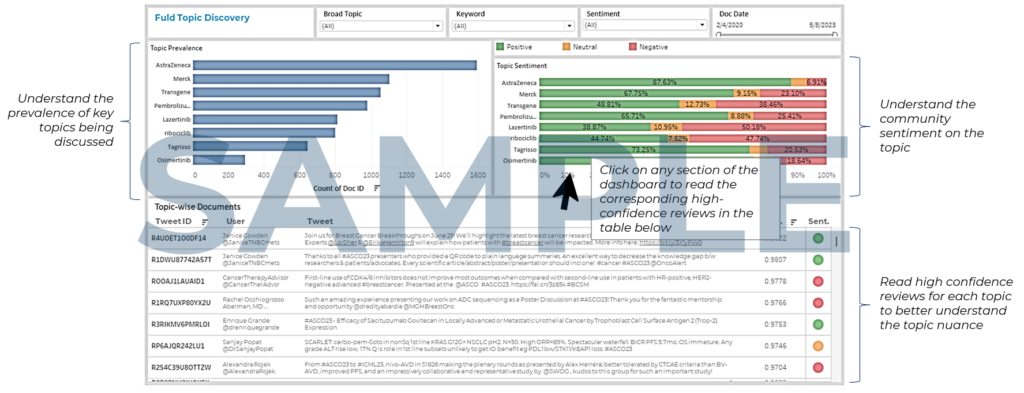Leveraging Machine Learning in customer sentiment analysis
Posted by | Shashank Kulshrestha
In a highly competitive market, staying ahead of customer expectations is critical for any manufacturer.
A leading American plumbing fixture manufacturer wanted to develop a groundbreaking shower filter capable of filtering and revitalizing water. To ensure the success of their new product, the manufacturer’s innovation team sought to learn from the mistakes of similar product manufacturers and develop a solution that met customer expectations, using customer sentiment analysis.
Objective
The company wanted to guide the development of their new shower filter by using machine learning to collect and analyze the vast pool of publicly available competitors’ customer product reviews to deliver customer sentiment analysis. This approach aimed to provide valuable insights, pinpoint product shortcomings and foster a comprehensive understanding of customer preferences.
Solution
To help them achieve their objective, Fuld implemented a comprehensive text analytics solution, leveraging cutting-edge techniques and algorithms:
- Data Gathering: Developed Python-based tools to gather the most recent reviews from major online marketplaces. To ensure a comprehensive analysis, the data encompassed three years.
- Data Preprocessing: Parsed and cleansed the gathered data using various NLP pre-processing techniques.
- Sentiment Analysis: Leveraged several powerful NLP and LLM algorithms to identify sentiment and emotion expressed in individual reviews and enable the team to understand the overall sentiments of customers towards competitors’ products.
- Topic Modeling: Optimized discovery-oriented ML algorithms to identify dominant topics within customer reviews and help uncover the key themes discussed by customers, providing valuable insights into their preferences and concerns.
- Analyzed sentiment for each topic to get a more granular and actionable understanding of customer perception
- Keyword Identification: Identified the keywords that drive positive reviews. This step was critical in identifying the factors that held the highest customer value, guiding the prioritization process during the product development and marketing design phase.
Outcome
The implementation of this comprehensive text analytics solution yielded several significant outputs:
- Interactive Dashboard: We created a user-friendly dashboard that enables users to navigate the results dynamically. It provides a visually appealing and intuitive way to test hypotheses and gain actionable insights.

- Key Learnings: The analysis uncovered essential learnings for the innovation and marketing teams, e.g., critical factors and keywords influencing customer expectations and satisfaction, such as quality, performance, value for money, and customer service, that require special attention during the product development process.
Conclusion:
By leveraging NLP techniques, the manufacturer was able to successfully collect and analyze customer expectations and perceptions. The insights derived from the analysis enabled its Innovation Team to make informed decisions and guide the development of its new shower filter. The Product Development team is now considering these findings and developing a new product to better address customer needs.
This case study highlights the power of text analytics to help businesses understand customer expectations and sentiment, identify product shortcomings, and ultimately drive successful product innovation within a B2B context.
Tags: Information Technology



















